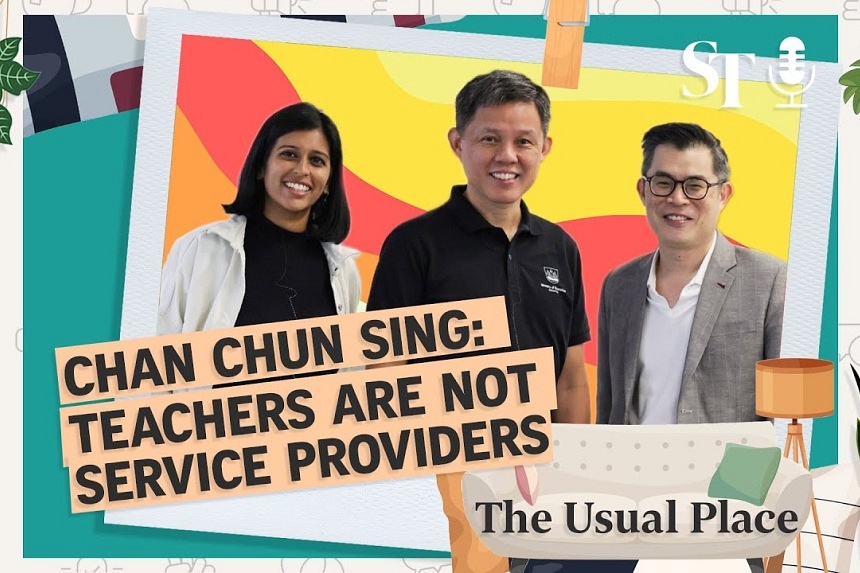He stressed that the majority of parents are supportive of teachers and educators. But he said that the “small number” of parents who go overboard has a “disproportionate effect because they deprive the other parents of the time that the educators would want to spend with the kids”.
Mr Chan was on The Usual Place, a podcast by The Straits Times, to talk about why he recently highlighted the need to establish guidelines on how parents communicate with teachers. Also weighing in on the issue and bringing his perspective as a father of two was Straits Times editor Jaime Ho.
Bypassing the school’s leadership, and instead getting a minister to bring pressure on the school, is something that Mr Chan said he “cannot tolerate”.
“I trust my principals, I trust my teachers. I always tell them that I’m not going to respond to this, because the more I respond to this, the more emboldened that individual will be to bypass (the system),” he said.
“Everybody will feel that – in order to get my way, I will have to do all this. The system will eventually break down, and (then) everyone loses. So for that very small number of parents, what they are doing is most unfair to the other parents and children.”
At the Ministry of Education (MOE) Schools Work Plan Seminar on Sept 18, Mr Chan said that teachers are not required to share their personal phone numbers, and do not need to respond to work-related messages after school hours.
Official channels such as e-mail and office numbers should be used when contacting parents, and teachers should respond to work-related messages after school hours only in the event of emergencies, he said.
Teachers are not ‘service providers’
Parents should see themselves as partners with their child’s teachers, said Mr Chan, rather than assume a transactional relationship with expectations and demands, as they would with a service provider.
Beyond creating entitled children or parents, he said such a mindset would have serious implications for the teaching profession.
“Who will want to be a teacher?” asked Mr Chan.
He pointed out that the Organisation for Economic Cooperation and Development has done studies among its members on the quality of education, and found that it was not pay, infrastructure or class size that matters most.
The most important thing was the quality of the teachers, said Mr Chan.
“If you can’t get quality teachers, your entire education system will collapse – no matter how good the policies are.”
Mr Ho asked if there has been a tipping point where the minister felt that the demands on teachers now have affected recruitment.
Mr Chan said that Singapore has not reached that stage yet, but he was worried by examples in other countries, where teachers have been driven to suicide or have resigned because they do not want to deal with the pressures of the job.

